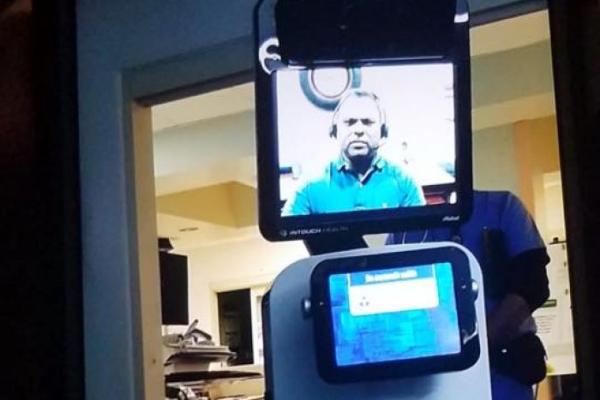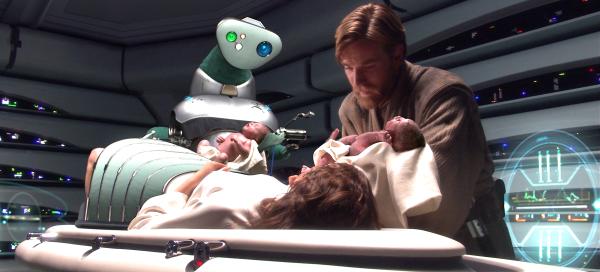How many of us will die in front of a screen?
Thoughts on a likely way to die, coming soon to a screen near you.

I only happened to read today the very disturbing, very sad story of Mr. Ernest Quintana. Here are the main points:
- on March 3, 2019, Mr Quintana, 78, was admitted to a hospital
- while his granddaughter was at his side, a doctor came in
- the doctor explained them that Mr. Quintana did not have long to live and “he didn’t know if Mr. Quintana is going to get home”
The problem is that the doctor was not a doctor. Not a physically present one, anyway. It was “a tall machine on wheels, [carrying] a screen streaming a live video of a doctor wearing a headset”.
Mr. Quintana died two days after that “conversation”, leaving his family obviously, rightly furious for such a way for the “use of telemedicine” in such a circumstance: “It should have been a human. It should’ve been a doctor who came up to his bedside."
First, the unbelievable part
That NYT article mentions that, according to a medical ethicist, health care providers “MAY have to modify their approach in communicating sensitive information” to terminally ill patients. The reason, said the same ethicist, is that telemedicine technology “MAY not be sensitive enough to pick up nuanced social cues, like body language and tone of voice, in an emotionally charged moment”.
MAY? MAY?? I don’t know whether to laugh or cry at reading that it a medical ethicist is needed to point out that human presence “may” be a good idea in certain circumstances.
Next, the future of deaths. Our deaths
(“Our” as in “those of us lucky enough to die in a modern hospital, of course”)
Telemedicine and robot-assisted healthcare are not going away because of tragic performances like that, of course. Among other things, they allows small hospitals to have critical care physicians available at all hours, even in rural areas. Scenes like these may be the Star Wars technology we are more likely to see in our own lives:

Keeping this in mind, the most hidden, but maybe most important issues in Mr. Quintana’s story are inequality, training and, above all, demography. The diffusion of telemedicine will create one more divide between haves and have-nots: only the latter will be sure to afford to always have human caregivers around them.
On the training front, see what I wrote about robotic surgery leaving young doctors not adequately prepared to complete robotic surgeries alone.
Demography, instead, has this habit that, when you notice its effects, it’s often 30 years too late to fix them. Besides, demography and inequality often go hand in hand. So the earlier we understand that certain news are anticipations, the better:
- one-person households are on the rise in the Netherlands, UK, U.S. and, generally, worldwide
- for the first time in the existence of the human species, there are more people over the age of 65 than there are under the age of five
- Doctors shortages are coming (at least) in Europe and USA
Translation: in the next decades, more and more of us may be told of their death like Mr. Quintana, just worst: with only a screen at their side. The more we work now to minimize these cases, the better.
Who writes this, why, and how to help
I am Marco Fioretti, tech writer and aspiring polymath doing human-digital research and popularization.
I do it because YOUR civil rights and the quality of YOUR life depend every year more on how software is used AROUND you.
To this end, I have already shared more than a million words on this blog, without any paywall or user tracking, and am sharing the next million through a newsletter, also without any paywall.
The more direct support I get, the more I can continue to inform for free parents, teachers, decision makers, and everybody else who should know more stuff like this. You can support me with paid subscriptions to my newsletter, donations via PayPal (mfioretti@nexaima.net) or LiberaPay, or in any of the other ways listed here.THANKS for your support!